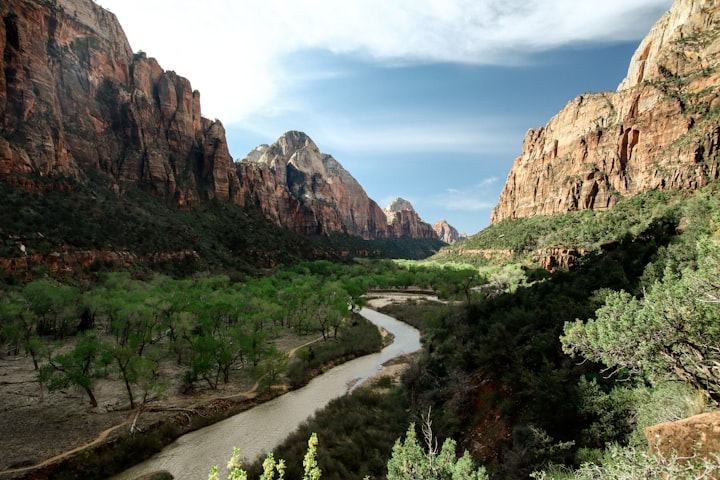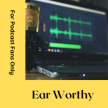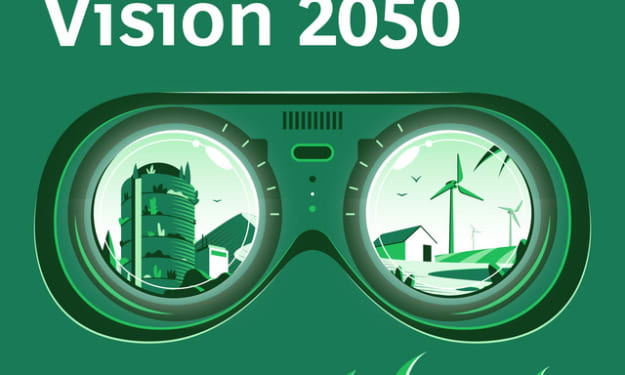Book Review: Feral by Emily Pennington
Self-discovery in our national parks.

Author: Emily Pennington
Rating: Four out of Four Trekking Poles
Ease Of Reading: 255 pages. The author’s words paint a wonderfully chromatic canvas for interpreting majestic nature throughout its history.
When To read: After hours on the phone with entitled customers who blame you for their miserable lives.
Memoir is a literary genre that attracts so many — too many — to try their hand at it. But it’s a deceptively tricky genre of literature. Unlike a biography, a memoir is typically about one event or time period in your life. Yet, memoirs can go off the rails with a flick of a switch. At times, memoirs can seem self-indulgent. Or self-absorbed claptrap. Or simply affluent white people in search of existential wisdom encased inside their upper middle class bubble.
Emily Pennington’s memoir, Feral, about a young woman who takes off a year from work to visit 62 national parks, has all the essential ingredients for that privileged journey for self-awareness and self-embrace.
Happily for the reader, Pennington has a lot more on her mind than a year-long sabbatical that floods social media with captivating images and “wish you were here” and “look at me” media posts.
Here’s what the novel’s notes say about the book: “A bracing memoir about self-discovery, liberating escape, and moving forward across an adventurous and volatile American landscape. One year. One national park at a time.”
Pennington spent a decade as an assistant to high-powered LA executives, and has decided to abandon her structured life and surrendered to the pull of the great outdoors. She has a budget tighter than Nicole Kidman’s face, a penchant for obsessive planning, and a temperamental volatile and capricious minivan she named Gizmo. This vehicle could have its own Pixar animated movie.
So what makes this memoir so much more readable than other books on the same subject? After all, authors and would-be authors are constantly writing books about how they hiked some trail, scaled a mountain or floated down some dangerous river.
First, Pennington is an experienced and gifted writer. She is a regular columnist at Outside magazine, adventurer, and a freelance writer. Pennington has published in the New York Times, The Guardian, Condé Nast Traveler, and Backpacker magazine. Pennington has also appeared on NPR and the podcasts Women Who Travel, Anxiously, The Outdoor Renaissance, Of Mountains and Men, and Tough Girl Podcast.
Second, Pennington understands that she, as the subject of the memoir, is sharing center stage with the majestic beauty of the parks she visits. In every visit to every park, she never seems to forget that the splendor of the natural world deserves the spotlight.
Third, Pennington possesses a special gift when describing natural scenes that make our lives seem puny.
Here is her description of Butte Lake, which is a few hours from Glacier National Park: “Amid a forest of tall, fragrant pines, Eva and I selected a campsite near Butte Lake, a jewel-toned body of water at the foot of an immense black lava bed that could have swallowed down dozens of football fields. Razor-sharp volcanic rocks gave way to fantastical dunes pigmented in fire and garnet.”
A few pages later, Pennington writes: “The lake hung in a high rock bowl, like an eagle’s nest filled with an enormous floating sapphire.”
Third, Pennington deals with a cascade of events that proves the Robert Burns aphorism about “The best laid plans…” On top of the logistical challenges of visiting 62 national parks around the U.S., Pennington dealt with the onset of the COVID pandemic, which suddenly made many parks unavailable for her and other tourists with more mundane goals.
Pennington’s year-long escape from middle-class ennui can stress any relationship. As her trip progresses, we learn — as she begins to understand — that her live-in boyfriend Adam (it’s his place) is not on board with her quest. When romantic couples discover to their shock that their life goals may not coordinate, one decides to reassess and redefine the relationship, and the other just wants to bolt and start over. Adam decides to end the relationship, and Pennington is now homeless after her journey is ended, and she suffers from disappointment, disillusionment, and depression.
Toward the end of her journey, Pennington asks herself a question that has haunted all of us at different times: “How do you admit to yourself that you can no longer trust the narrative of your own mind?”
This metaphysical query is more Immanuel Kant than Elizabeth Gilbert from Eat, Pray, Love.
Like Dorothy when she wakes up from her dream / nightmare about Oz, Pennington asks herself and the world questions about existence, survival, and our place in the natural world.
The book ends with this observation that “if things were messy, maybe they always would be, and maybe that was okay.”
Her last words are a prayer that ends, “If I am to belong nowhere, let me belong everywhere.”
What does that mean? I don’t know, but skilled writers ask questions of their readers instead of simply trying to provide all the answers.
And, if you decide to attempt what Pennington did, please use a much better vehicle than her piece of crap. Maybe a Subaru Outback. Or a Toyota RAV4.
About the Creator
Frank Racioppi
I am a South Jersey-based author who is a writer for the Ear Worthy publication, which appears on Vocal, Substack, Medium, Blogger, Tumblr, and social media. Ear Worthy offers daily podcast reviews, recommendations, and articles.






Comments
There are no comments for this story
Be the first to respond and start the conversation.